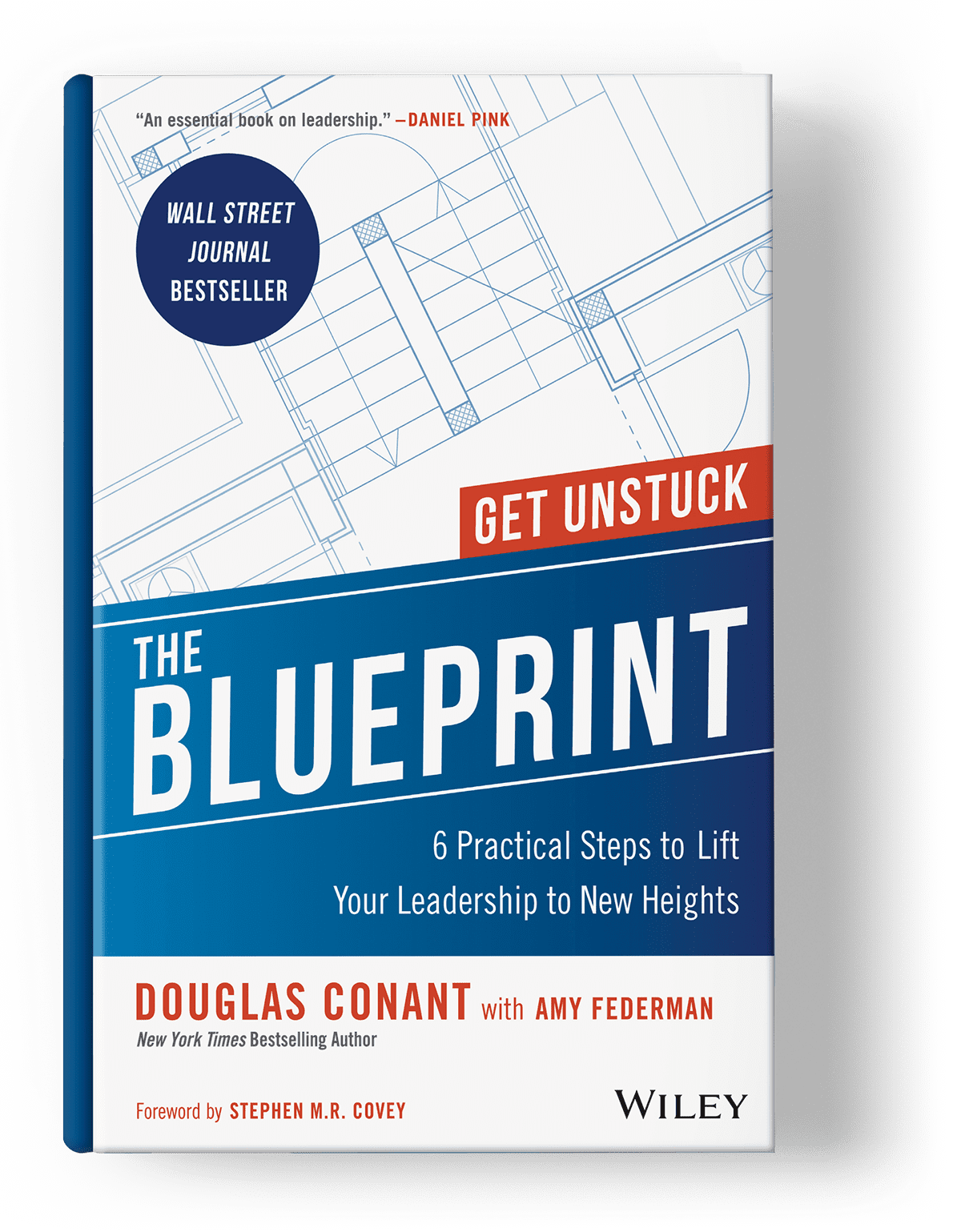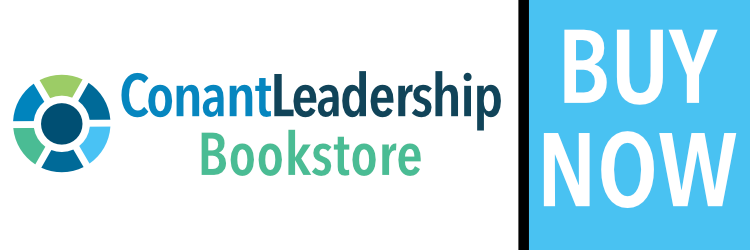Leadership that works is complex and ever-changing. While some areas of leadership practice are timeless and reliably useful (like the seven practice areas in our ConantLeadership Flywheel) sometimes it can seem that there are fewer and fewer “timeless” leadership traits. Leaders in the 21st century must consistently learn, grow, change, and lift their game to remain competitive in a dynamic and ruthless marketplace. This fact can feel daunting. But there is a silver lining.
As we talked about in last week’s blog, even though the demands of leadership today do require a more adaptive approach, there remain two essential traits to leadership that are unchanging: Competence and Character. These two stalwart elements should anchor your leadership — no matter the year, no matter the challenge — as long as you commit to developing these two most essential traits, you will be in a position to thrive. Always.
Importantly, as we emphasized in our Competence checklist post, you must cultivate them together, simultaneously. Neither trait is sufficient on its own; you need both. Without them, you will not be able to inspire trust, or change your organization for the better, and your leadership will be dead on arrival.
Character can be elusive and tricky-to-define.
Last week, in Part 1 of this series, we gave you a checklist to help measure your leadership Competence. This week, we’ve compiled a checklist for you to use to test your leadership Character. We thought this would be especially helpful since Character can be an elusive and tricky-to-define attribute. While many people agree that an unimpeachable character is essential, many struggle to verbalize what it actually entails, means, or looks like. That’s why he hope this checklist will add discipline to your efforts to help shape your definition of leadership Character, and will provide a way for you to measure your progress and hold yourself accountable.
Go through the list to get an idea of where you stand now, and then use the checklist as a reference for practices you can use to better strengthen your Character over time. Give yourself a numerical score from 1-5 for each item – score yourself 1 for “poor”; 2 for “needs work”; 3 for “average”; 4 for “good”; and 5 for “excellent.” As you revisit the checklist, watch how your scores change and improve in the long term.
Checklist Part 2 – Character:
GENERAL:
- Do you know why you want to lead? Are you connected, visibly, to a larger purpose that adds meaning to your work?
- Do you have a code of conduct, value system, or collection of beliefs that guides your actions? Can you clearly articulate your leadership philosophy, beliefs, or code?
- Do you make it a practice to declare yourself honestly to the people with whom you live and work – and to allow them to do the same with you?
- Do you make a practice of presenting an authentic version of yourself both in intimate conversations and in public presentations to larger groups of stakeholders?
- Do you courageously lean in to challenges even when it might have career repercussions?
- Do you feel empowered to choose your response in the face of adversity? When things go awry, are you able to consciously avoid feeling like a victim, and to take control of your reactions and behaviors?
INTEGRITY:
- Are you deserving of trust? Do you uphold your declared value system and beliefs even when it is very difficult or unpopular?
- Do you “walk the talk? Do you do what you say you are going to do and do it well? Consistently?
- Is your behavior the same when others are around to hold you accountable and when nobody’s looking?
- Do you honor your commitments? At work and in your personal life?
- Do you make time for what you say is important to you (i.e. if you claim charity is important to you, is there actually a substantial amount of time blocked out on your calendar to devote to charitable work?)
- When you make a mistake, do you swiftly acknowledge it and take action to correct it? Can you admit when you have been wrong?
- Are you transparent?
INFLUENCING WITH HONOR:
- Do you wield your leadership influence and/or position honorably and responsibly? Do you treat people with the appropriate respect?
- Do you listen carefully to people and value their opinions, input, and feedback?
- Do you believe that it is unrealistic to expect extraordinary effort and performance without creating an environment in which people feel extraordinarily valued? If so, have you created such an environment?
- Do you make sure not to abuse your power or use your station to threaten, frighten, coerce, or manipulate people?
- Are you purposeful about making yourself available to people? Do you honor them with your time and attention?
- Do you have your people’s back? Do you stand by them when they need your support?
- Do you regularly ask people, genuinely, how you can be of help or service to them?
- Do you enjoy your work and imbue your organization with a sense of joy, fun, or liveliness?
- Do you make it a priority to ensure the work environment is clean and cared for, and is a quality place for people to do their work?
COURAGE:
- Are you unafraid to make business personal — and to be passionate about your leadership? Do you courageously express your passion and beliefs to others?
- Is your approach aspirational? Do you reach high and set ambitious goals and ask that others do the same?
- Are you able to let your guard down and be “real” with people sometimes so they are able to better connect with you?
- Are you able to continuously challenge people to do better, in a supportive but tough-minded way?
- Can you uphold high ethical standards even in environments where unethical behavior is accepted or even normalized?
- Do you have grit? Do you persevere when things get tough? Can your people perceive your persistence?
HUMILITY:
- Are you able to acknowledge that you might not always be the smartest person in the room?
- Do you express your gratitude easily and effectively?
- Do you actively seek advice and/or counsel from mentors, coaches, or contemporaries?
- Are you able to admit when you don’t have the answer to a tough problem and to proactively seek the advice of external or internal stakeholders who might have the necessary expertise to help solve your problem(s)?
- Do you treat everyone with the same level of respect, from the janitor to the CFO?
- Do you embrace the notion of “We can always do better”? Do you earnestly approach your leadership craft with this humble acknowledgement that there is always an opportunity for improvement?
- Do you believe that innate talent can only get you so far? Do you subscribe to the idea that in order to become exceptional at the craft of leadership, you must work, very hard, at doing so?
- Do you consistently remind yourself that you are dependent on others to get things done for the organization? Do you demonstrate that awareness?
- Do you think the people in your organization would say that you are aware of, and grateful for, their contributions to the enterprise?
As you work through the checklist, you may find there are other practices or actions that you’d like to work on to strengthen your leadership character. Simply add them to the list. This checklist, along with our Competence checklist, is a resource for you – to return to time and again — to use to hold yourself accountable, and to change or add to, in whatever way is helpful to you. If there is anything you think we missed, drop us a line in the comments. Let’s get to work!






0 Comments